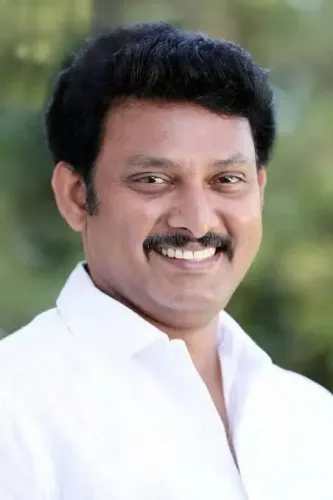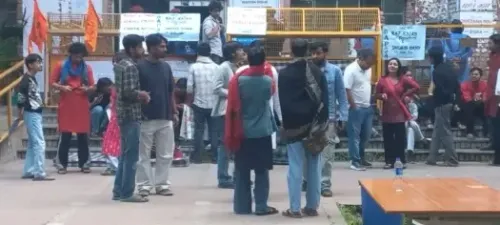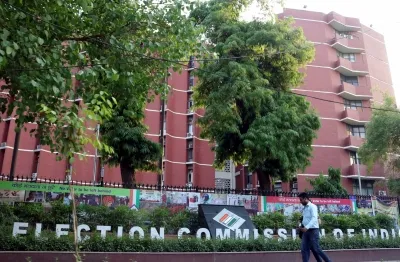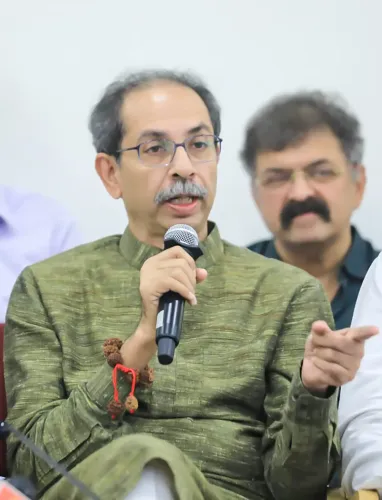FairPoint: The Blaze that Unveiled the Judiciary's Concealed Truths!
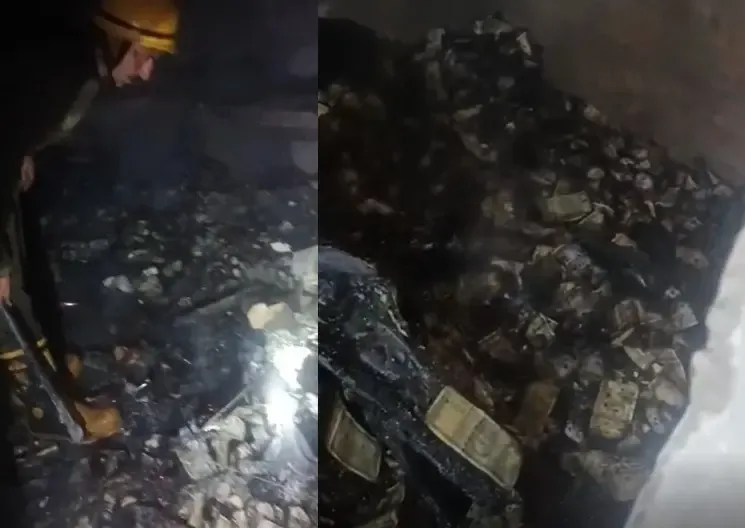
Synopsis
Key Takeaways
- The incident involving Justice Yashwant Varma has raised serious concerns about judicial integrity.
- Transparency and accountability are urgently needed in the judicial system.
- Allegations of corruption have prompted discussions among legal luminaries.
- Historical precedents highlight ongoing issues within the judiciary.
- The judiciary must address corruption to maintain public trust.
New Delhi, March 23 (NationPress) 'See you in court'— a phrase frequently employed as a final warning in disputes encapsulates the essence of the judiciary's position as the ultimate adjudicator of justice.
Judges, endowed with the authority to influence the trajectories of individuals' lives and establish crucial legal precedents, are revered figures within society.
Trust and faith — this is how the judiciary is perceived. Yet, when a sitting High Court judge's name becomes associated with allegations involving substantial amounts of money, it invariably leads to shock. Even more troubling is the atmosphere of mystery surrounding the incident, which has ignited fervent discussions and demands for transparency and accountability.
Whether the allegations hold merit is a question for the Apex Court to decide, but this controversy has thrust the judiciary into a deeply uncomfortable position. It surfaces at a time when other democratic pillars and significant institutions are under the spotlight, facing challenges from both opposition parties and civil society organizations. This moment urgently calls for the judiciary's careful consideration.
There have been whispers regarding various judiciary-related issues. However, the fear of contempt has silenced many. Just like in other sectors, there may be bad actors within the system. Still, such stories seldom emerge from this arena. There exists a boundary beyond which only the judicial system can operate, and others are prohibited from speaking or commenting. The lords inhabit their own realm.
The personnel of the Delhi Fire Brigade likely never anticipated that responding to a fire at a judge's residence would unveil crores in cash.
On March 14, around 11:30 p.m., a fire erupted at the home of Justice Yashwant Varma, a sitting judge of the Delhi High Court. Reports indicate that the call pertained to a fire in the storeroom, and two fire tenders quickly extinguished the flames.
During the operation, it is reported that fire brigade personnel and the police stumbled upon 'jute sacks filled with cash.' Whether this is fact or fiction remains for the authorities to clarify; media outlets have been rife with news, even featuring the name and image of the sitting judge.
After considerable speculation surrounding the incident, the top court, in an unprecedented act of transparency, publicly disclosed the report from Delhi High Court Chief Justice D.K. Upadhyaya. The video shared by the city's Commissioner of Police with the Chief Justice of the Delhi High Court (HC) was also released, depicting the charred cash piles allegedly found at Justice Yashwant Varma's residence. The report additionally includes Justice Varma's rebuttal to the allegations and relevant documents.
The matter is now under the scrutiny of the top court, as Chief Justice of India (CJI) Sanjiv Khanna has formed a three-member committee to investigate Justice Varma.
Prominent legal figures are voicing not only their concern regarding the incident but are also advocating for a system of transparency and accountability within the entire judiciary.
Senior lawyer and Rajya Sabha member Kapil Sibal emphasized that 'corruption within the judiciary is a grave issue' and noted that 'this has been expressed by senior counsels and lawyers multiple times.'
Former Attorney General of India and senior lawyer Mukul Rohatgi has highlighted the 'urgent requirement to reform the judiciary's systems, especially regarding appointments, disciplinary actions, and removal processes.'
Senior Supreme Court advocate and BJP leader Nalin Kohli remarked that this is a 'very serious matter,' and 'questions will undoubtedly arise.'
This is not the first instance where the judiciary has come under scrutiny due to an unfortunate event. Its excessive activism has also faced criticism at times.
In July 2015, the Supreme Court opened its doors at 3 a.m. for judges to hear the final plea against the execution of Yakub Memon for his involvement in the 1993 Mumbai blasts case. This unprecedented action marked the first time the Supreme Court convened at such an hour. After about 90 minutes, the judges dismissed Memon's plea, leading to his execution in Nagpur jail shortly before 7 a.m. on July 30, 2015.
While the court recognized the situation surrounding the Memon plea case, the displaced Kashmiri Pandits have failed to receive the same level of sensitivity from the judiciary. Their requests for an investigation into the terrorist-led genocide of Pandit community members in Kashmir during 1989-90 were dismissed by the top court, stating 'no case is made out.'
Ironically, a senior Supreme Court judge (now retired) acknowledged in the Article 370 verdict of 2023 that little had been addressed regarding the plight of Kashmiri Pandits — possibly due to their lack of status as a significant electoral group worthy of political attention.
While judicial activism may not always warrant praise, corruption remains a critical concern.
A minor fire in a judge's residence has ignited a fierce blaze within the judicial system that must be addressed judiciously. It is time for profound reflection and decisive measures. Ignoring the circumstances would be tantamount to burying one's head in the sand. The judiciary should embody the spirit of 'see you in court' — the ultimate provider of justice. Most people continue to hold faith in it.
(Deepika Bhan can be reached at deepika.b@ians.in)

